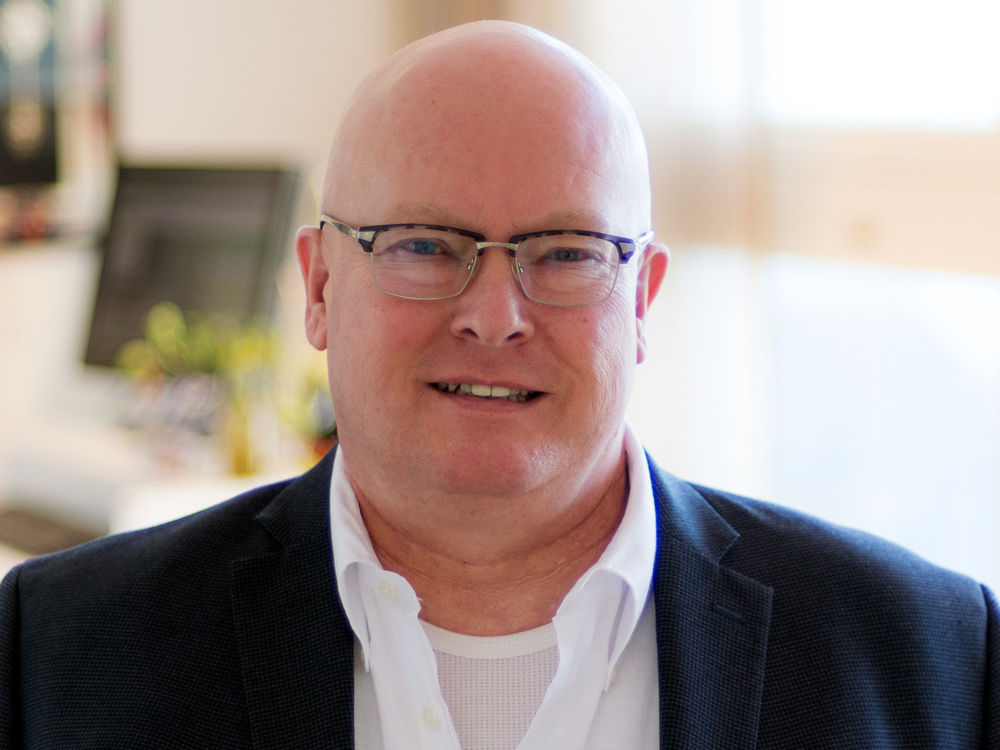ICAP at Columbia University has named Mark Schnellbaecher as its new Chief Operating Officer. Following a 30-year career leading humanitarian and refugee assistance programs, Schnellbaecher will leverage his years of international expertise to guide ICAP to achieve its vision of a world where quality health services are available to all, so that people and communities can thrive and prosper. We asked Mark to talk about himself, and his perspective of ICAP and the international development landscape as a whole.
Why did you want to be the Chief Operating Officer of ICAP?
After spending my entire career working internationally in humanitarian relief and refugee programs, I felt I had the in-country experience and perspective to successfully support ICAP. I was particularly attracted to the work ICAP is doing on health systems strengthening to improve health ministries and health delivery service systems. After working in refugee settings, I have seen how necessary it is.
What was the path you took to get to where you are today?
I went to the Georgetown University School of Foreign Service. In my junior year there rather than doing junior year abroad in Barcelona or Paris, I did a program assisting refugees. I spent the year on the Thai/Cambodian border with Cambodian refugees, and that sort of set me on the path. From 2013-2020, I was the International Rescue Committee’s (IRC) Regional Vice President for the Middle East and North Africa, based in Amman, Jordan. Prior to that, I held a similar regional role, in Beirut, Lebanon for Catholic Relief Services from 2002-2012. Earlier in my career, I also lived and worked in Cambodia, Pakistan, Bosnia, Serbia, and Kosovo.
What have been the biggest challenges you’ve had to overcome in your career?
Helping staff to avoid burnout. While working at IRC, many of the staff in the region were frontline service providers who see a lot of suffering. I helped people maintain their resilience, their compassion, their professionalism despite everything that they saw and the difficult circumstances under which they worked.
What do you feel is the biggest strength of ICAP right now?
ICAP’s adeptness at technical assistance and the reservoir of technical expertise, both among its headquarter as well as country staff, combined with its ability to seek other expertise at Columbia University more broadly position it well to contribute to achieving its vision. This combined with its commitment to building strong and durable partnerships around the world. ICAP’s commitment to supporting training, research with service enables effectively advancing the health and well-being of people around the world.
What is the greatest challenge ICAP and the international development community at large is facing?
Building genuine partnerships and enabling full ownership of programs. I look at it as how do we genuinely enhance health systems that provide quality services by individuals who take full ownership of these programs and services and with full commitment to recipients of the services. It is only through strong and resilient health systems and workforce that the breadth of health challenges around the world can be effectively addressed. This must continue to be the guiding principle at every step of the way.
How do we get there?
We need to continue to work diligently on creating the conditions that make health a priority and that are always focused on enhancing the foundations of strong health systems. And we must make sure that no one is left behind, that our work is responsive to the needs of all individuals, groups, and communities and inclusive of their voices.
About ICAP
A major global health organization that has been improving public health in countries around the world for nearly two decades, ICAP works to transform the health of populations through innovation, science, and global collaboration. Based at Columbia Mailman School of Public Health, ICAP has projects in more than 30 countries, working side-by-side with ministries of health and local governmental, non-governmental, academic, and community partners to confront some of the world’s greatest health challenges. Through evidence-informed programs, meaningful research, tailored technical assistance, effective training and education programs, and rigorous surveillance to measure and evaluate the impact of public health interventions, ICAP aims to realize a global vision of healthy people, empowered communities, and thriving societies. Online at www.icap.columbia.edu








